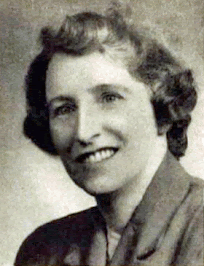Fred Landon was a journalist, librarian, a historian-teacher-administrator at the Western University, and an author. After graduating from Western in 1906, he worked at the London Free Press before attaining the post of chief librarian at the London Public Library in 1916. At LPL he established a local history collection and earned a Masters degree at Western in 1919. Then he became the university’s chief librarian in 1923, a position he held until 1947. During this time, he oversaw the development of the new Lawson Library; as well, he taught in the History Department until 1950. He was President of the Ontario Historical Society, 1926-28, and, in 1948-49, he was President of the newly formed Bibliographical Society of Canada. A branch of the London Public Library on Wortley Road was named in his honour on September 8th 1955. Landon’s portrait is taken from Western’s 1941 Occidentalia yearbook, p. 117. My biography appeared originally at the Ex Libris Association website in 2017.
Fred Landon
Born November 5, 1880, London, ON; Died August 1, 1969, London, ON
Education:
1906 BA University of Western Ontario
1919 MA University of Western Ontario
Positions:
1907-1916 Reporter and editor, London Free Press
1916-1923 Chief Librarian, London Public Library
1916-1923 Lecturer in History and English, Western University
1923-1947 Librarian of the University and Associate Professor, Department of History
1946-1950 Vice-President, University of Western Ontario
1947-1950 Dean Graduate Studies, University of Western Ontario
Publications:
Fred Landon published hundreds of articles, news stories, reviews, and books. A comprehensive listing was compiled by Hilary Bates, “A Bibliography of Fred Landon,” Ontario History, 62.1 (March 1970): 5-16.
Selected Books
Middleton, Jesse and Fred Landon (1927-1928). The Province of Ontario: a history, 1615-1927. Toronto: Dominion Pub. Co. (5 vols.)
Landon, Fred (1941). Western Ontario and the American frontier. Toronto: Ryerson Press.
Landon, Fred (1944). Lake Huron. Indianapolis: Bobbs-Merrill.
Landon, Fred (1960). An exile from Canada to Van Diemen's Land: being the story of Elijah Woodman … 1837-38. Toronto: Longmans, Green.
Landon, Fred (2009). Ontario’s African-Canadian heritage: collected writings by Fred Landon, 1918-1967 edited by Karolyn Smardz Frost, et. al. Toronto: Natural Heritage Books.
Selected Articles
Landon, Fred (1917). “The library and local material.” Ontario Library Review 1.3 (February): 61-62.
Landon, Fred (1918). “J. Davis Barnett's gift to Western University.” Ontario Library Review 3.1 (August): 16.
Landon, Fred (1921). “A city library’s work.” Ontario Library Review 6.1&2 (August-November): 10-13.
Landon, Fred (1924). “Adult education - University of Western Ontario.” Ontario Library Review 9.2 (November): 34-35.
Landon, Fred (1927). “The Toronto Conference–II: Canadian Library Association.” Library Journal 52: 749–750.
Landon, Fred (1930). “Public libraries and the extension activities of universities.” Ontario Library Review 15.1 (August): 6-8.
Landon, Fred (1935). “Lawson Memorial Library.” Ontario Library Review 19.3 (August): 118–120.
Landon, Fred (1939). “Lawson Memorial Library, beautiful building, is enduring monument.” Ontario Library Review 23.1 (February): 9–10.
Landon, Fred (1945). “The library at the University of Western Ontario.” College & Research Libraries 6.2 (March): 133–141.
Associations/Committees:
1918-1920 President, London & Middlesex Historical Society
1926-1927 President, Ontario Library Association
1926-1928 President, Ontario Historical Society
1941-1942 President, Canadian Historical Association
1948-1949 President, Bibliographical Society of Canada
1950-1958 Chair, Historical Sites and Monuments Board of Canada
Honours:
1929 Elected Fellow of the Royal Society of Canada
1945 Awarded J.B. Tyrrell Historical Medal, Royal Society of Canada
1950 D.Litt. (University of Western Ontario)
1950 LL.D (McMaster University)
1955 London Public Library branch on Wortley Road is renamed Fred Landon Branch Library
1967 Awarded Cruikshank Gold Medal, Ontario Historical Society
Comments:
Fred Landon excelled at many careers during his lifetime: he was a public and university librarian, journalist, editor, historian, teacher, administrator, and active leader in professional and scholarly associations. He is best known for his academic contributions to the history of Ontario, especially its southwestern region. At London Public Library, he began to assemble local history materials that form part of the present day Ivey Family London Room. Fred Landon was instrumental in persuading James Davis Barnett to donate his 40,000-volume library to the Western University in 1923. Under his administrative tenure at Western, the Lawson Library opened in 1934. Fred Landon was an articulate lecturer and colleagues found him to be an efficient administrator. The libraries at Western were small in size, just more than 20,000 volumes, when Landon assumed control in 1923; when he stepped down in 1946 there were almost 170,000 volumes.
Sources:
Armstrong, Fredrick H. (1970). “Fred Landon, 1880-1969.” Ontario History 62.1 (March): 1-4.
Skidmore, Patricia. (1992). “Mind and manuscript: the work of historian-teacher Fred Landon, 1881-1969.” Ex Libris News no. 12 (Fall): 10-21.
Banks, Margaret A. (1989). The libraries at Western 1970 to 1987 with summaries of their earlier history and a 1988 postscript. London: University of Western Ontario.
Giles, Suzette (2015). “Libraries named after librarians.” ELAN: Ex Libris Association Newsletter no. 58 (Fall): 7-8.




